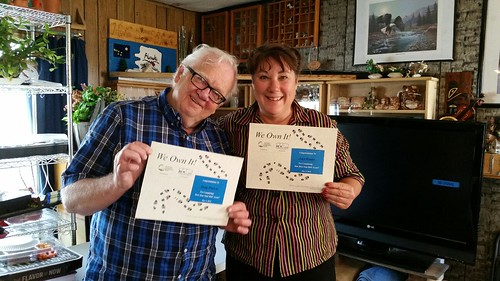BOSTON—Pharmaceutical company Warner Chilcott has agreed to plead guilty to health care fraud and pay $125 million to resolve criminal and civil liability arising from the illegal promotion of the drugs Actonel®, Asacol®, Atelvia®, Doryx®, Enablex®, Estrace®, and Loestrin®, and various formulations of these drugs.
In a related development, former Warner Chilcott President W. Carl Reichel was arrested this morning in Boston for conspiring to pay kickbacks to physicians. Reichel will make an initial appearance in U.S. District Court in Boston today at 2:30 p.m.
In addition, in recent weeks, three former Warner Chilcott district managers pleaded guilty or agreed to plead guilty to conspiracy to commit health care fraud and criminal HIPAA violations, and a Springfield, Mass. physician was indicted for taking kickbacks, criminal HIPAA violations and obstruction of justice.
“Doctors’ medical judgment should be based on what is best for the patient, and not clouded by expensive meals and other pharmaceutical company kickbacks,” said United States Attorney Carmen M. Ortiz. “Pharmaceutical company executives and employees should not be involved with treatment decisions or submissions to a patient’s insurance company. Today’s enforcement actions demonstrate that the government will seek not only to hold companies accountable, but will identify and charge corporate officials responsible for the fraud.”
“The Justice Department is committed to protecting the integrity of physician prescribing decisions and ensuring that financial arrangements in the healthcare marketplace comply with the law,” said Principal Deputy Assistant Attorney General Benjamin C. Mizer, head of the Justice Department’s Civil Division. “The Department will continue to hold companies and responsible individuals accountable when they use improper incentives, like those alleged here, to promote their products.”
“Pharmaceutical companies and their employees have a significant responsibility to sell and market drugs in an ethical and legal manner,” said Special Agent in Charge Harold H. Shaw of the FBI’s Boston Field Office. “This settlement and the related indictments reflect the commitment of the FBI and our government partners to aggressively investigate companies and individuals who fail that responsibility and seek to profit from fraudulent activities.”
“Placing financial gain above the legitimate needs of patients is deplorable,” said Inspector General Daniel R. Levinson of the U.S. Department of Health and Human Services. “Paying kickbacks and even providing instructions on how to defraud Medicare are practices that will not be tolerated.”
“These types of health care fraud investigations have great impact on VA operations because the settlement will return funds to VA for the continued care of our nation’s Veterans,” said Jeffrey G. Hughes, Special Agent in Charge, Department of Veterans Affairs, Office of Inspector General. “The VA OIG will continue to work with its law enforcement partners and the Boston U.S. Attorney’s Office to combat fraud in the health care arena.”
The Warner Chilcott Resolution
In a criminal Information filed today in U.S. District Court in Boston, the government charged that, between 2009 and 2013, Warner Chilcott employees, at the direction of members of the company’s management team, paid remuneration to physicians in order to induce those physicians to prescribe Warner Chilcott drugs. The Information alleges that Warner Chilcott employees provided payments, meals, and other remuneration associated with so-called “Medical Education Events.” These events, which were often held at expensive restaurants, frequently contained minimal or no educational component, and were instead used to pay prescribing physicians in an attempt to gain a competitive advantage over other pharmaceutical companies.
The Information also alleges that, from 2011 to 2013, Warner Chilcott employees submitted false, inaccurate, or misleading prior authorization requests to federal health care programs for the osteoporosis medications Atelvia® and Actonel®. A prior authorization request contains protected health information, including biographical data and information concerning a patient’s medical condition. The fraudulent requests were provided to certain insurance companies in order to overcome restrictions that favored less expensive osteoporosis drugs. In some instances, Warner Chilcott sales representatives submitted these prior authorizations directly to insurance companies, holding themselves out to be physicians.
In addition, the Information alleges that Warner Chilcott employees were instructed by members of the company’s management team to make unsubstantiated superiority claims when marketing the drug Actonel® even though the claim was not supported by clinical evidence. The management team instructed the sales representatives to tell physicians that Actonel® was superior to other bisphosphonates due to its supposedly unique “mechanism of action.”
Under the terms of the criminal plea agreement, Warner Chilcott will pay a fine of $22,940,000. Warner Chilcott also entered into a civil settlement agreement under which it agreed to pay $102,060,000 to the federal government and the states to resolve false claims it submitted to government health care programs. The federal share of the civil settlement is approximately $91.5 million, and the state Medicaid share of the civil settlement is approximately $10.6 million. The civil settlement was brought under the whistleblower provisions of the False Claims Act and the whistleblowers will receive approximately $22.9 million from the federal share of the civil recovery.
The civil case was investigated by the FDA’s Office of Chief Counsel, HHS Office of Counsel to the Inspector General, and the National Association of Medicaid Fraud Control Units. The civil settlement was handled by Assistant U.S. Attorneys Sonya Rao and Susan Poswistilo of Ortiz’s Civil Division and Trial Counsel Colin Huntley of the Commercial Litigation Branch of the Justice Department’s Civil Division.
The criminal case was investigated by the FBI, HHS-OIG, the Department of Defense’s Defense Criminal Investigative Service, the FDA’s Office of Criminal Investigations, the Department of Veterans Affairs and the Office of Personnel Management’s Office of Inspector General. The criminal case of the company was handled by Assistant U.S. Attorneys David Schumacher and Miranda Hooker of Ortiz’s Health Care Fraud Unit and AUSAs Rao and Poswistilo. The criminal cases of individuals are being prosecuted by AUSAs Schumacher and Hooker of Ortiz’s Health Care Fraud Unit.
Carl Reichel Indictment
The former President of Warner Chilcott, W. Carl Reichel, 57, of Chester, N.J., was indicted on one count of conspiracy to pay kickbacks. Reichel was arrested today in Boston and will make an appearance before U.S. District Court Chief Magistrate Judge Jennifer Boal at 2:30 p.m.
The indictment alleges that, between 2009 and 2012, Reichel, designed a sales and marketing strategy to provide physicians payment and other benefits, including free dinners and bogus “speaker” fees, in return for prescriptions of Warner Chilcott drugs. Reichel provided the sales force with virtually unlimited expense accounts to wine and dine physicians and other health care practitioners. These so-called “medical education programs,” in fact, contained little, if any, medical education, and a primary purpose of the program was to obtain prescriptions from the physicians.
Reichel also allegedly designed the strategy of signing up physicians who prescribed a high volume of their drugs as paid “speakers” for Warner Chilcott. According to the indictment, the “speakers” often did not speak at all, and instead enjoyed an expensive dinner with a sales representative. Reichel instructed the sales force that they should only continue to use the “speakers” if they were prescribing Warner Chilcott drugs at a high level, and that they should communicate to the “speaker” that he or she would not be used—paid—at subsequent events until their Warner Chilcott prescriptions increased.
The charging statute provides a sentence of no greater than five years in prison, three years of supervised release and a fine of $250,000. Actual sentences for federal crimes are typically less than the maximum penalties. Sentences are imposed by a federal district court judge based upon the U.S. Sentencing Guidelines and other statutory factors.
The details contained in the indictment are allegations. The defendant is presumed to be innocent unless and until proven guilty beyond a reasonable doubt in a court of law.
The District Manager Pleas 1. Timothy Garcia
Timothy Garcia, 35, of Los Gatos, Calif., pleaded guilty on Oct. 16, 2015, to one count of conspiracy to commit health care fraud. U.S. District Court Chief Judge Patti B. Saris scheduled sentencing for April 14, 2016.
From 2008 to 2011, Garcia worked for Warner Chilcott and served as a district manager in the company’s osteoporosis division in 2011, managing approximately 12 sales representatives in the San Francisco Bay area. The same year, Warner Chilcott launched Atelvia®, an osteoporosis drug, which many insurance companies around the country did not cover primarily because a generic alternative was available. Many of these insurance companies would only pay for Atelvia® if a physician submitted a prior authorization but were often hesitant to do so. Recognizing this, Garcia aggressively pushed his sales representatives to manipulate Atelvia® prior authorizations. Garcia instructed his sales representatives that, if the physicians or staff were unwilling to prepare Atelvia® prior authorizations, the sales representatives should fill them out themselves. Futhermore, Garcia stressed the importance of concealing the misconduct of his sales representatives.
In 2011, Garcia received a bonus of more than $60,000, and was promoted to senior district manager in Warner Chilcott’s most prestigious sales division. As a result of the scheme, insurance companies, including Medicare, paid Warner Chilcott at least $100,000 for Atelvia® based on prior authorizations that were manipulated by Garcia’s sales representatives.
The charging statute provides a sentence of no greater than 10 years in prison, three years of supervised release and a fine of $250,000, or twice the gross gain or loss resulting from the offense, and exclusion from the Medicare program. Actual sentences for federal crimes are typically less than the maximum penalties. Sentences are imposed by a federal district court judge based upon the U.S. Sentencing Guidelines and other statutory factors.
2. Landon Eckles
Landon Eckles, 30, of Huntersville, N.C., was charged in an Information on Oct. 16, 2015, with one count of wrongful disclosure of protected health information, in violation of the criminal provisions of the Health Insurance Portability and Accountability Act (HIPAA). A plea hearing is scheduled for Nov. 12, 2015, before U.S. District Court Judge George A. O’Toole, Jr.
According to the Information, from 2007 to 2012, Eckles worked for Warner Chilcott and served as a district manager in the company’s osteoporosis division in a mid-Atlantic district. Atelvia® had poor insurance coverage in Eckles’s district when it was launched in 2011, and many insurance companies required a prior authorization before covering Atelvia®. Eckles allegedly directed certain sales representatives that, if physicians refused to fill out Atelvia® prior authorizations, the sales representatives should fill them out themselves. By doing so, Eckles and his sales representatives accessed patients’ protected health information.
In addition, following directions from his supervisors, Eckles allegedly encouraged his sales representatives to ensure that patient medical charts in physicians’ offices were “flagged” with Atelvia® brochures, so that physicians would be reminded to prescribe Atelvia® for the patients. According to the Information, Eckles and a sales representative accessed a number of patients’ medical charts and placed Atelvia® brochures in the charts in a Philadelphia physician’s office. Eckles bragged about this tactic, stating, “I guarantee you that this is going to drive business,” and encouraged his sales representatives to follow suit. In part, as a result of his scheme, Eckles received a bonus of approximately $60,000 in 2011.
The charging statute provides a sentence of no greater than 10 years in prison, three years of supervised release and a fine of $250,000, forfeiture, and exclusion from the Medicare program. Actual sentences for federal crimes are typically less than the maximum penalties. Sentences are imposed by a federal district court judge based upon the U.S. Sentencing Guidelines and other statutory factors.
3. Jeff Podolsky
Jeff Podolsky, 49, of East Meadow, N.Y., pleaded guilty on July 7, 2015, to one count of conspiracy to commit health care fraud. U.S. District Court Chief Judge Patti B. Saris scheduled sentencing for April 8, 2016.
From 2009 to 2013, Podolsky worked for Warner Chilcott. He served as a district manager in New York City and Long Island in 2010 and 2011, during which time Atelvia®, as well as its predecessor drug, Actonel®, had poor insurance coverage. Podolsky directed the sales representatives in his district to fill out prior authorizations for physicians who prescribed Actonel® and Atelvia®, using false clinical justifications as to why the patient needed the drugs and submitted them to health insurance companies.
As a result of the scheme, Podolsky’s district was the top-grossing district in Warner Chilcott’s osteoporosis division. In 2011, Podolsky received a bonus of more than $100,000, and was promoted to senior district manager in a more prestigious sales division. Insurance companies and Medicare paid at least $200,000 for Actonel® and Atelvia® prescriptions that were based on prior authorizations that were manipulated by Podolsky’s sales representatives.
The charging statute provides a sentence of no greater than 10 years in prison, three years of supervised release and a fine of $250,000, or twice the gross gain or loss resulting from the offense, forfeiture and exclusion from the Medicare program. Actual sentences for federal crimes are typically less than the maximum penalties. Sentences are imposed by a federal district court judge based upon the U.S. Sentencing Guidelines and other statutory factors.
Rita Luthra Indictment
Rita Luthra, M.D., 64, of Longmeadow, Mass., was indicted on Oct. 21, 2015 with one count of accepting kickbacks, one count of wrongful disclosure of protected health information, and one count of obstructing a criminal investigation.
From October 2010 to November 2011, Warner Chilcott paid Luthra $23,500 to prescribe its osteoporosis drugs, Actonel® and Atelvia®. On at least 31 occasions during that period, a Warner Chilcott sales representative brought food into Luthra’s medical office for Luthra and her staff and paid Luthra $750 to talk with her for 25-30 minutes while she ate. It is alleged that Luthra’s prescriptions of Actonel® and Atelvia® increased during the time that she was paid by Warner Chilcott and precipitously declined once she stopped being paid. Luthra also allowed a Warner Chilcott sales representative to access protected health information in her patient’s medical files in order to submit prior authorizations for Atelvia®. Finally, Luthra allegedly lied to federal agents when interviewed about her relationship with Warner Chilcott, and allegedly directed one of her employees to do the same.
The charge of violating the Anti-Kickback Statute provides a sentence of no greater than five years in prison, three years of supervised release, a fine of $25,000, forfeiture and exclusion from the Medicare program. The charge of disclosure of individually identifiable health information provides a sentence of no greater than one year in prison and/or a fine of $50,000, one year of supervised release and exclusion from the Medicare program. The charge of obstructing a criminal health care investigation provides a sentence of no greater than five years in prison, three years of supervised release and a fine of $250,000. Actual sentences for federal crimes are typically less than the maximum penalties. Sentences are imposed by a federal district court judge based upon the U.S. Sentencing Guidelines and other statutory factors.




